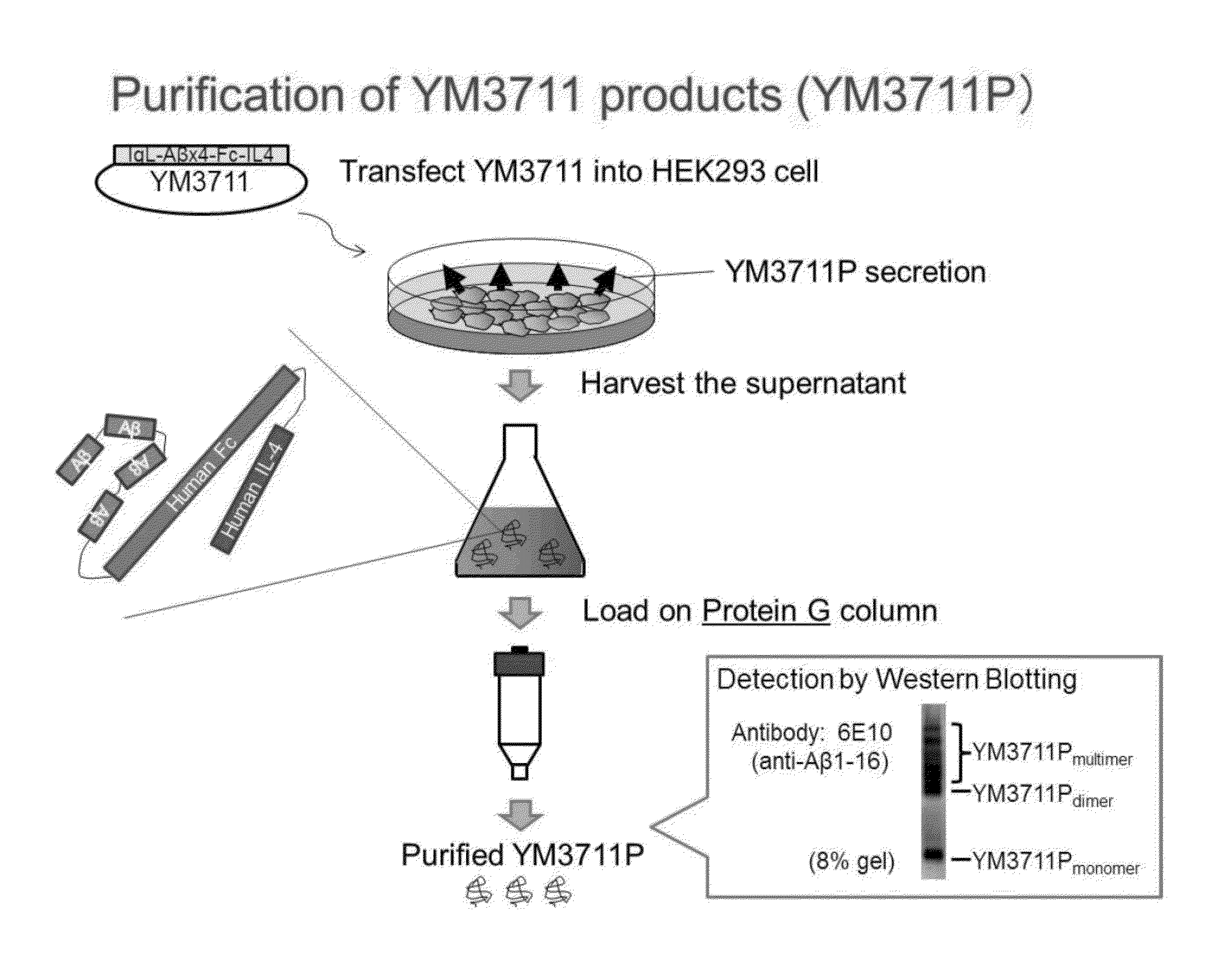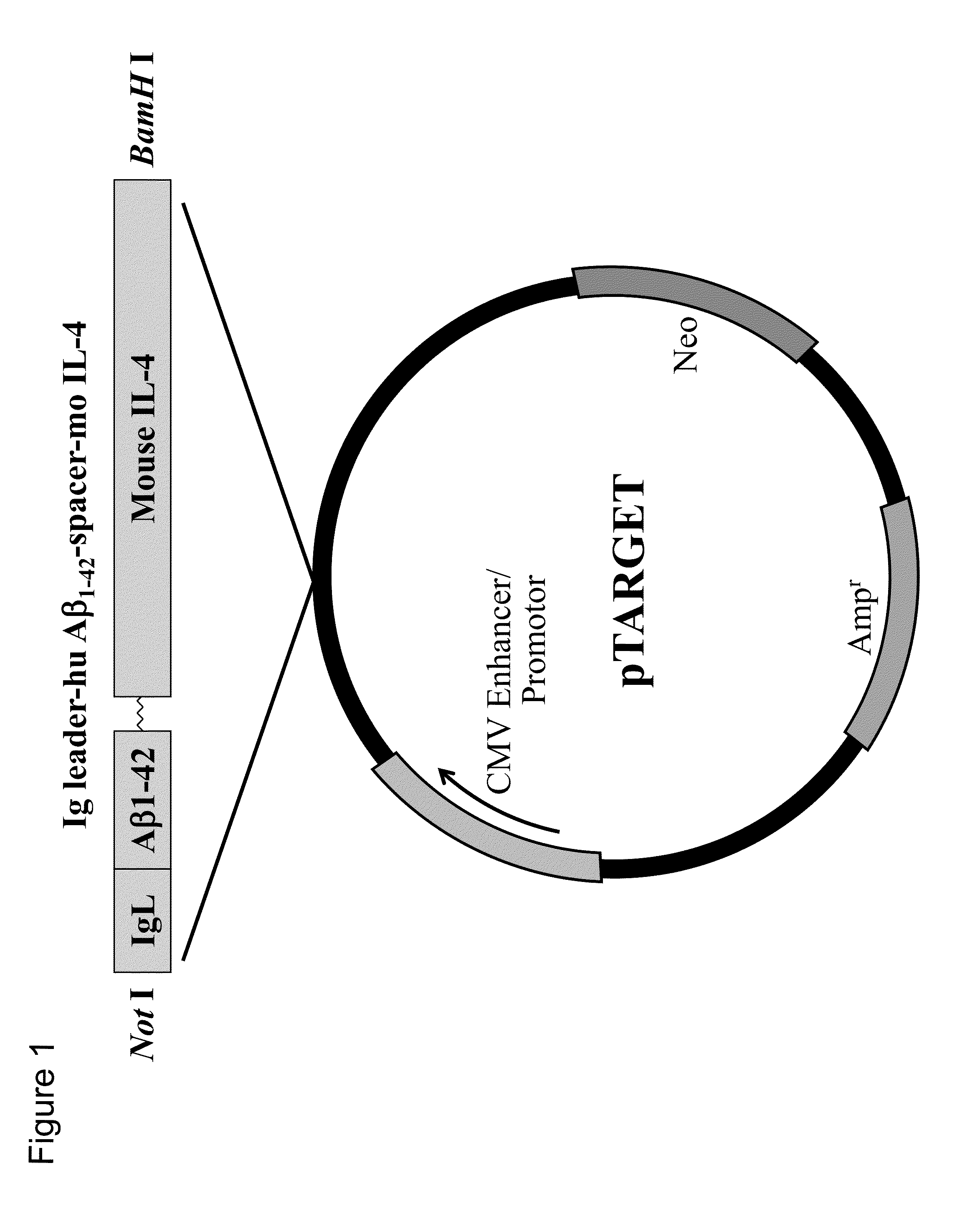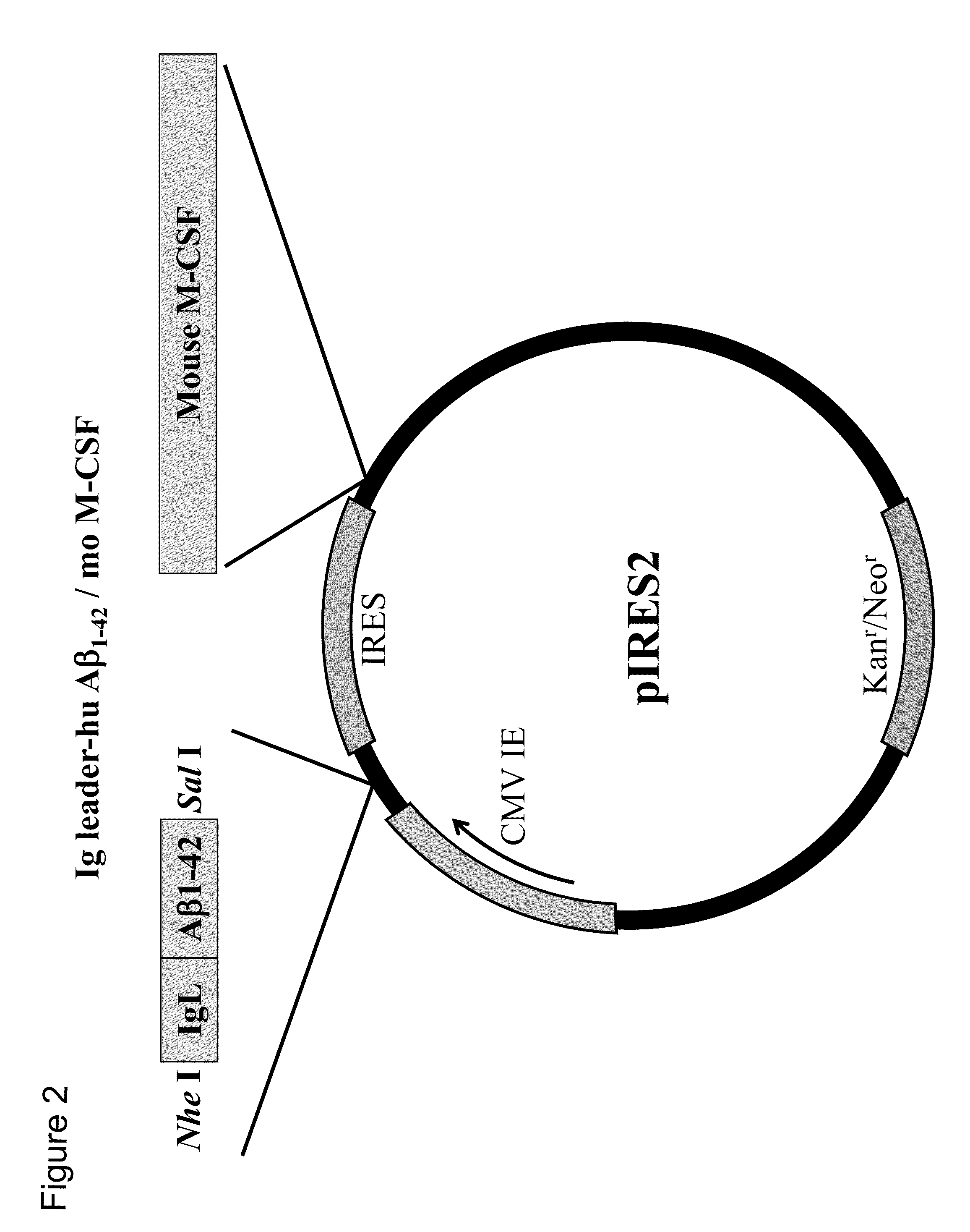DNA vaccine for alzheimer's disease
a technology for alzheimer's and dna, applied in the field of dna vaccines for alzheimer's disease, can solve the problems of difficult to overcome side effects, clinical trials in humans have been discontinued, and patients themselves are not only affected, so as to achieve high amyloid aggregation propensity, high therapeutic effect, and high affinity for senile plaques
- Summary
- Abstract
- Description
- Claims
- Application Information
AI Technical Summary
Benefits of technology
Problems solved by technology
Method used
Image
Examples
example 1
1. Construction of Plasmid Vector pTarget / Ig-leader-Aβ1-42-IgFc
(1) Amplification and Cloning of IgL, Aβ and Fc Genes
[0158]To clone the sequences of immunoglobulin κ leader (hereinafter referred to as IgL) and immunoglobulin Fc (hereinafter referred to as Fc or IgFc), human peripheral blood mRNA was used as a material to synthesize cDNAs with ReverTra Ace-α- (TOYOBO, Tokyo, Japan). Primers containing the 5′- or 3′-terminal end of each sequence and having an appropriate restriction enzyme site (IgL: BamH I or Xho I; Fc: Kpn I or Not I) were designed and used to amplify human IgL and Fc sequences with KOD-plus- (Toyobo, Tokyo, Japan). Although the original sequence of human Fc contains three codons each encoding a cysteine residue near the 5′-terminal end, these codons were each modified to encode a serine residue (TGT→TCT or TGC→TCC) during primer design so as to avoid S-S linking, and the primers thus designed were used to obtain amplification products.
[0159]The sequence of amyloid β...
example 2
Vaccination Test
[0180]1. Vaccination Test with pTarget / IgL-Aβ1-42-mIL-4 and pIRES2 / IgL-Aβ1-42-moM-CSF
(1) Materials and Methods
[0181]In the vaccination test, model mice of Alzheimer's disease were used. These model mice were obtained from the Jackson Laboratory, USA. The vaccines used were pTarget / IgL-Aβ1-42-mIL-4 (also referred to as “Aβ-IL4 vaccine”), which was prepared by integrating mouse IL-4 into the plasmid, and pIRES2 / IgL-Aβ1-42-moM-CSF (also referred to as “M-CSF vaccine”), which was prepared by integrating mouse M-CSF into the plasmid.
[0182]The model mice at 4 months of age were vaccinated (100 μg) once per two weeks by intramuscular injection, and the effect of eliminating deposited Aβ was observed at 10 months of age (FIG. 3). First, the mice were sacrificed under deep anesthesia, and their cerebrums were excised and fixed with 4% paraformaldehyde. The fixed brains were dehydrated, embedded in paraffin, and then sliced into thin sections. The sections were deparaffinized ...
example 3
Further Vaccination Test with pVAX1 / IgL-(Aβ1-42)x4-huIgFc-huIL-4 (YM3711)
1. Materials and Methods
[0216](1) In vitro Characterization
[0217]For in vitro characterization, HEK293 cells were cultured in a 6-well plate and transfection with YM3711 or other DNA vaccines was performed under 90% confluency. Briefly, 4 μg of the indicated DNA vaccine was mixed with 10 μl of Lipofectamine 2000 (Invitrogen) in OPTI-MEM I and kept at room temperature for 20 min. Then, the mixture was added to each well and the plates were cultured for 4 h. After washing with DMEM (Invitrogen), the cells were further cultured for 3 days. The supernatant, and occasionally cell pellet, of transfected cells were harvested and subjected to Aβ quantitation using the Human β Amyloid (1-42) ELISA Kit Wako, High-Sensitive (Wako, Osaka) according to the manufacturer's instruction. OD450 was read with ARVO X3 (PerkinElmer Japan, Kanagawa).
[0218]IL-4 activities were determined by bioassay using an IL-4-dependent cell line,...
PUM
 Login to View More
Login to View More Abstract
Description
Claims
Application Information
 Login to View More
Login to View More - R&D
- Intellectual Property
- Life Sciences
- Materials
- Tech Scout
- Unparalleled Data Quality
- Higher Quality Content
- 60% Fewer Hallucinations
Browse by: Latest US Patents, China's latest patents, Technical Efficacy Thesaurus, Application Domain, Technology Topic, Popular Technical Reports.
© 2025 PatSnap. All rights reserved.Legal|Privacy policy|Modern Slavery Act Transparency Statement|Sitemap|About US| Contact US: help@patsnap.com



